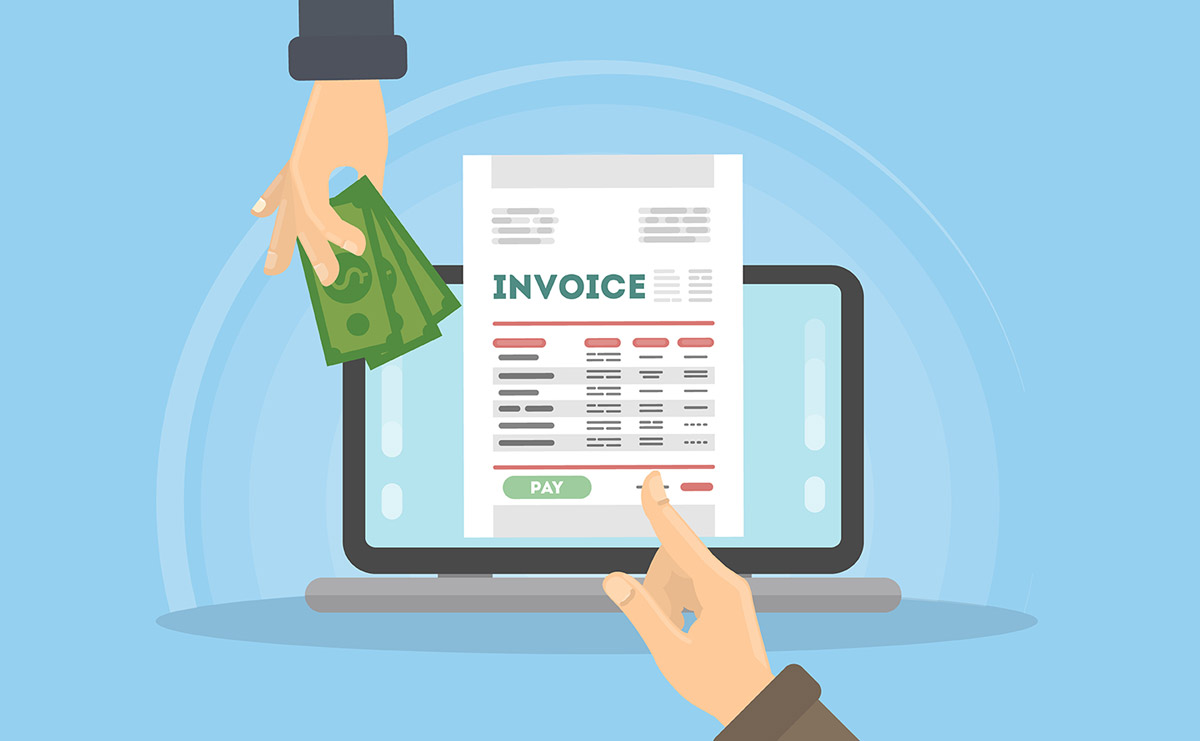Contents
The Next Generation of Legal Billing: How RunSensible Transforms Payments and Digital Billing
Traditional law firm billing methods have long been the standard for legal professionals, offering a variety of approaches to charging clients for services. The most widely used model is hourly billing, where lawyers charge based on the time spent on a case. Time is often tracked in increments, and clients are billed for each hour or portion thereof. While this ensures that lawyers are compensated for every task, it can lead to unpredictability in final costs for clients, often causing dissatisfaction.
Another common approach is flat fee billing, where lawyers charge a fixed amount for a specific service, such as drafting contracts or handling straightforward legal matters. This method provides clients with a clear understanding of their financial commitments, as they know the cost upfront. However, it can be risky for the lawyer if the case takes more time than initially anticipated, potentially reducing the effective hourly rate for the work done.
Retainer billing is also widely used, especially for ongoing legal services. In this model, the client pays a retainer, held in trust and used to cover legal fees as services are provided. This arrangement benefits the lawyer, who secures payment in advance, and the client, who knows they have legal services on standby. However, if the retainer is depleted, additional billing may lead to disputes or unexpected costs for the client.
For contingency fee billing, often used in personal injury cases, the lawyer’s compensation is contingent upon winning the case or securing a settlement. Lawyers receive a percentage of the client’s financial recovery, making this a favorable option for clients who cannot afford upfront fees. However, lawyers assume more significant risk, as they may not be paid at all if the case is lost.
Some firms use hybrid billing, combining methods such as flat fees and hourly billing. For example, an attorney might charge a flat fee for initial consultations and then switch to hourly rates for more complex work. This approach allows for flexibility in billing based on the nature of the case, ensuring that clients are accommodated and considered in the billing process. However, it can confuse clients, especially if the transition between billing methods is not well-communicated.
Traditional paper-based billing systems have several limitations that can hinder law firms’ efficiency and client satisfaction. One of the main drawbacks is the time-consuming process of preparing, printing and mailing invoices, which takes away valuable time that could be spent on billable tasks. Additionally, the costs associated with physical supplies like paper, ink, and postage and the labor involved increase overhead expenses. Manual data entry in paper-based billing also increases the risk of errors, leading to potential disputes and delayed payments that negatively impact cash flow. Payments are often delayed further due to the slower nature of mail delivery, and clients may need help placing bills or responding to them. Unlike digital systems, paper billing lacks real-time tracking capabilities, making it harder for law firms to promptly monitor outstanding payments and financial statuses.

Furthermore, paper invoices are prone to being lost or damaged, limiting accessibility for both clients and firms. The environmental impact is another concern, as paper billing contributes to waste and energy consumption. Finally, in today’s digital age, clients expect more convenient and efficient billing options, and the outdated paper-based approach can lead to dissatisfaction, especially among tech-savvy individuals. Transitioning to digital billing can address these issues, offering a faster, more reliable, and environmentally friendly solution.
Law firms are exploring alternative billing models as clients increasingly demand transparency and value. Options like subscription services, value-based pricing, and recurring payments offer more predictability and efficiency. These new methods are designed to address the limitations of traditional billing by aligning the cost of legal services with the value delivered to clients, fostering better client relationships and more sustainable business practices for law firms.
Why Digital Billing Transformation Is Essential in Law Firms
Digital billing transformation is a game-changer for law firms, offering numerous advantages that directly enhance efficiency, client satisfaction, and financial management. Here is a breakdown of why it matters:
Enhanced Efficiency and Automation
Switching to digital billing eliminates tedious manual tasks like creating invoices, tracking payments, and sending reminders. Automation helps avoid errors, reduces the time spent on admin work, and lets lawyers focus more on legal tasks. The billing process becomes faster, smoother, and far more consistent.
Better Client Experience
Clients want clarity and convenience when paying for legal services. Digital billing gives them easy access to view their invoices, check their payment history, and pay securely online. This transparency builds trust and can lead to quicker payments, strengthening the lawyer-client relationship.
Smarter Financial Management
With digital billing systems, law firms can easily track their cash flow, outstanding payments, and overall financial health. Detailed reporting and real-time data allow firms to make informed pricing, budgets, and resource planning decisions.
Compliance and Risk Reduction
Many electronic invoicing platforms are built to comply with legal standards, such as trust accounting rules. This helps law firms stay in compliance, reduce risks, and ensure they meet ethical requirements, including client confidentiality.
Reduced Costs
Moving away from paper billing eliminates the need for printing, postage, and manual processing. Fewer mistakes mean fewer billing disputes or missed payments, which can be expensive. Over time, this leads to significant cost savings.
Easier Scalability
As a firm grows, managing billing by hand becomes a headache. Digital platforms are designed to scale, making handling more clients and cases easy without increasing the administrative load. Whether it’s thousands of invoices or payments, the system can handle it.
Improved Cash Flow
Digital billing speeds up the invoice and payment, leading to better cash flow. Features like automatic reminders, recurring billing, or payment plans help ensure payments are made on time and reduce overdue accounts.
Data Security
Law firms deal with sensitive client information, and digital billing platforms come equipped with encryption and other security measures to protect that data. In an industry where confidentiality is critical, having secure systems is necessary.
In general, switching to digital billing is more than just a convenience—it is a strategic move that can help law firms streamline operations, improve client relationships, and stay competitive.
Why Cloud-Based Billing Solutions?
Cloud-based billing solutions offer significant advantages for law firms by automating invoicing, reducing administrative tasks, and speeding up payment cycles. They improve efficiency through faster payments and better client communication, offering remote access to billing data for increased flexibility. These systems seamlessly integrate with other practice management tools, ensuring smoother workflows and fewer errors. Embracing cloud-based billing enhances both operational efficiency and client satisfaction.
How RunSensible Transforms Payments and Billing
RunSensible provides a comprehensive cloud-based solution that streamlines law firms’ payments and billing processes. One key feature is its ability to automate invoicing and billing. By automating the creation and sending of invoices, RunSensible significantly reduces the manual work involved in billing clients. With recurring billing features, firms can set up automated billing cycles for repeat clients, ensuring invoices are consistently sent out on time without manual intervention.
Another major advantage of RunSensible is its integration with major payment gateways. This allows clients to pay invoices directly online, speeding up the payment process and reducing the likelihood of late payments. The integration also provides clients with a convenient, hassle-free way to settle their bills, enhancing the overall client experience.
For law firms that provide ongoing services, RunSensible offers the option to set up recurring payment schedules. It secures a steady cash flow without constantly chasing clients for payments. Recurring payments also simplify the process for clients by offering predictable and easy-to-manage payment plans, creating a win-win for both parties.
Flexibility is another key benefit of RunSensible, as it allows law firms to offer customized payment plans based on their client’s financial needs. These flexible options not only increase accessibility to legal services but also help attract more clients by providing personalized solutions for managing payments.
RunSensible also provides transparent reporting and real-time billing and payment tracking. Law firms can access reports on outstanding invoices, payment histories, and financial performance. This helps firms stay organized and proactive in managing their finances, allowing them to address any payment-related issues promptly.
RunSensible further integrates seamlessly with leading accounting software, enabling firms to manage their finances in a centralized system. This eliminates the need for manual data entry, reduces errors, and ensures the accuracy of financial records.
Security and compliance are top priorities in RunSensible’s payment processing system. The platform ensures that all payment transactions are secure and meet industry standards, giving law firms the confidence that sensitive client data is protected.
By transforming how payments and billing are managed, RunSensible enables law firms to save time, improve cash flow, and enhance client satisfaction.
Disclaimer: The content provided on this blog is for informational purposes only and does not constitute legal, financial, or professional advice.







